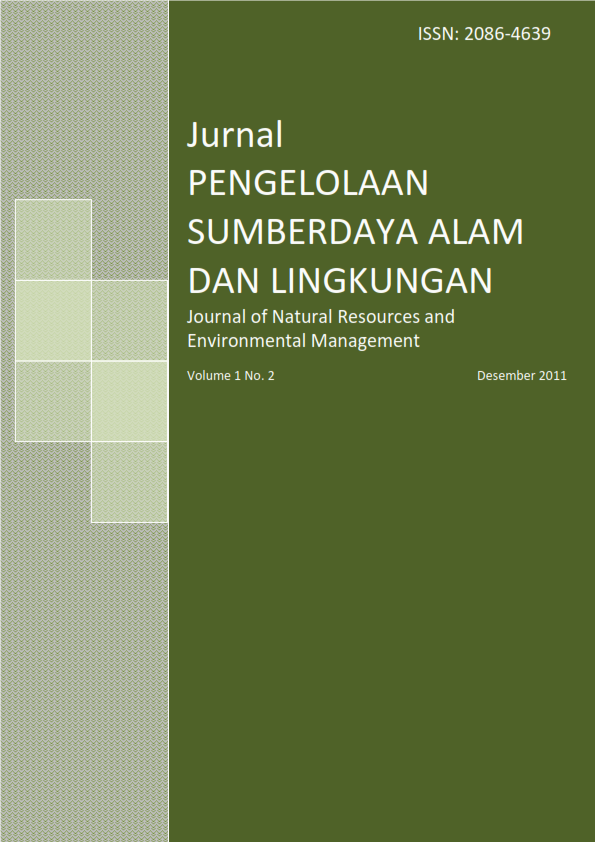Abstract
This research is aimed to analyze socio-ecological vulnerability of the community in Segara Anakan against the impact of changes in ecological condition. This analisis on vulnerability is linked to social ecological resilience, which in this context covers mechanism for the people to live together as a community, and to learn from changes and unpredictable schocks. The analysis is based on the social ecological system approach, with data collected through interviews with 241 respondents drawn purposively from citizens of four villages in the District of Kampung Laut in April-May 2010. The result shows that in the case of Segara Anakan Lagoon, a number of problems which are social-economical in nature has resulted in low resilience or high vulnerability. Such problems covers land use conflict, economic competition, deforestation and land convertion. These problems are triggered by changes in ecosystem characteristics, from those of maritime toward the terrestrial one, and which results in changes in the community livelihood pattern. Villagers who were more into fishery transform to agricultural and industrial communities. In line with such changes and transformation, a number of prominent factors emerged to cause high vulnerability in Segara Anakan, namely poor educational performance and lack of socio-economic infrastructure. Furthermore, the result suggests that improving the resilience in Segara Anakan should be focused on advancement of ecomic environment facilitated by infrastructures that add no further burden to the environment.
Key words: vulnerability, social-ecological system, social vulnerability, ecological vulnerability, community, lagoon, Segara Anakan lagoon
Authors
Authors who publish with this journal agree to the following terms:
- Authors retain copyright and grant the journal right of first publication with the work simultaneously licensed under a Creative Commons Attribution License that allows others to share the work with an acknowledgement of the work's authorship and initial publication in this journal.
- Authors are able to enter into separate, additional contractual arrangements for the non-exclusive distribution of the journal's published version of the work (e.g., post it to an institutional repository or publish it in a book), with an acknowledgement of its initial publication in this journal.
- Authors are permitted and encouraged to post their work online (e.g., in institutional repositories or on their website) prior to and during the submission process, as it can lead to productive exchanges, as well as earlier and greater citation of published work (See The Effect of Open Access).






